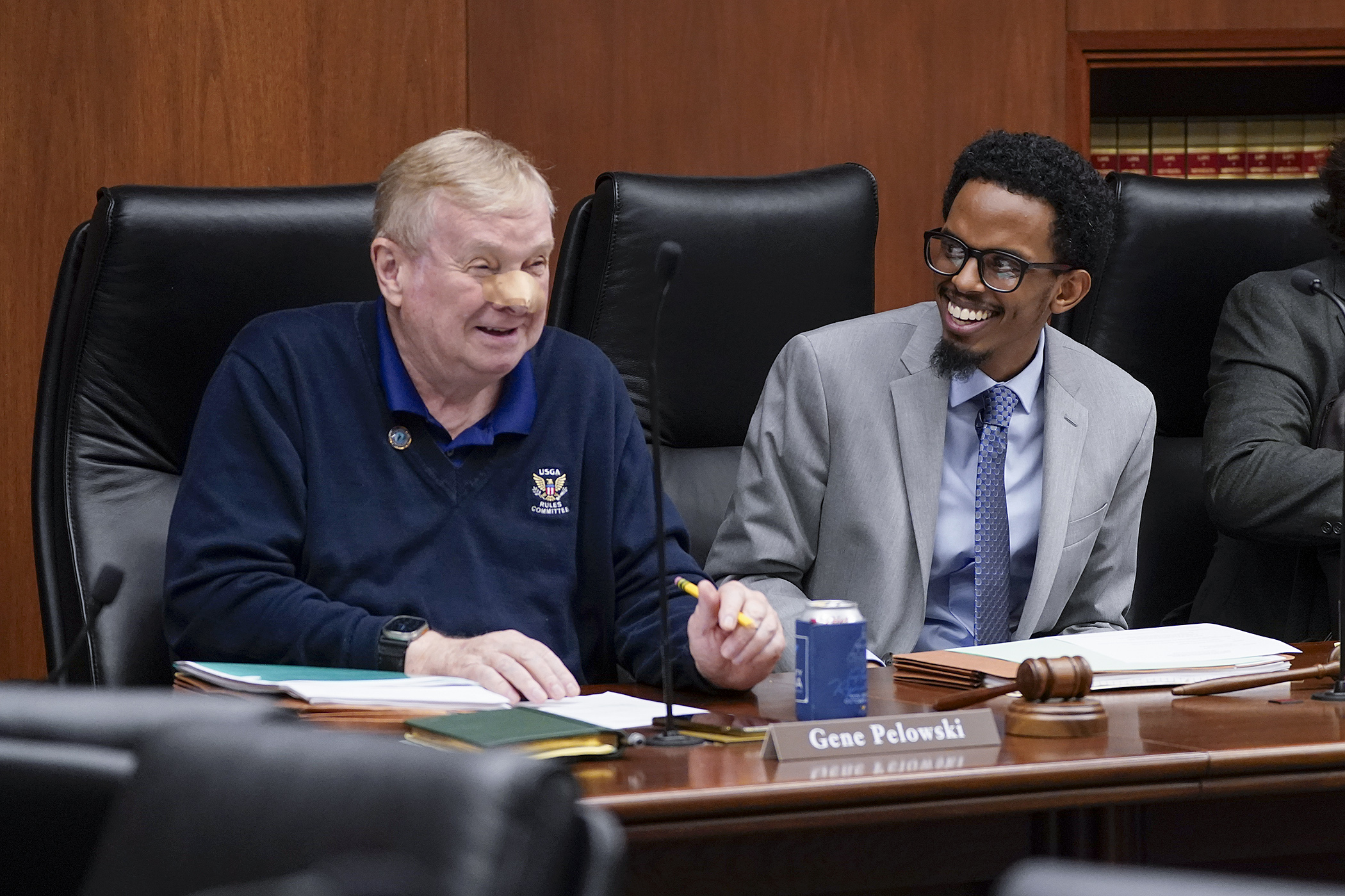Higher ed conferees ace final, make quick work of blending bills

If you were paying attention when the House passed its higher education policy and supplemental budget bills, the higher education conference committee report may produce some déjà vu for you. It reads something like a hybrid of those two bills, with one or two small additions from the Senate.
Perhaps the lack of changes is a respectful graduation gift from conferees for the bill’s co-sponsor, Rep. Gene Pelowski, Jr. (DFL-Winona). The senior member of the House, Pelowski is not seeking re-election.
Sponsored by Pelowski and Sen. Omar Fateh (DFL-Mpls), HF4024 was replaced with a delete-all amendment and further altered by an oral amendment before being approved Thursday afternoon by the conference committee. It now heads to the House and Senate floors.
Although modest in financial scope, the bill contains several policy changes designed to assist students who have been in foster care, have a disability, are parents or are pregnant.
While the governor and legislative leaders gave the higher education committees a budget target of $500,000, larger financial considerations came into play under their purviews.
For example, $20 million in research grants designed to develop treatment and a possible cure for amyotrophic lateral sclerosis, or Lou Gehrig’s disease, was re-appropriated, split between the $396,000 already dispensed in fiscal year 2023 and $19.6 million for fiscal year 2024.
The most dramatic moments in this session’s meetings of the House Higher Education Finance and Policy Committee came when students who had been in the foster care system testified about concerns that the new Fostering Independence grant program had proven so popular that it had maxed out its appropriation and would require a first-come, first-served policy and a waiting list for applicants. A potential solution is found in the bill, which would transfer $5.04 million from the North Star Promise scholarship program to the Fostering Independence grants.
And the $500,000 budget target would go toward the Minnesota State system for a “Kids on Campus” partnership with Head Start for child care and early learning centers on system campuses.
[MORE: View the spreadsheet]
Policy provisions
Among changes in state higher education policy within the bill are measures that would:
- require criminal records not be considered in admissions;
- require access to transcripts not be withheld due to debt;
- revise Minnesota State’s campus sexual misconduct policy;
- require designating staff navigators for parenting students;
- create protections for pregnant and parenting students;
- revise policies and requirements for accommodating students with disabilities;
- create requirements for online program management companies doing business in the state;
- require an annual report from the Office of Higher Education on consolidated student aid;
- establish order of aid calculations for financial aid;
- clarify eligibility details for the Fostering Independence grant program and the North Star Promise scholarship program;
- increase the amount of revenue bonds the Minnesota Higher Education Facilities Authority may issue;
- alter payment provisions for the Student Educational Loan Fund program;
- establish fees for institutions requiring multiple revisions and corrections on their applications for state licensure;
- establish several requirements for the licensure of private career schools, including having a physical presence within the state;
- add energy as an eligible category for workforce development scholarships; and
- request that the University of Minnesota Landscape Arboretum provide free unlimited access to disabled veterans.
Rep. Joe McDonald (R-Delano) successfully proposed an oral amendment concerning scholarships for the University of Minnesota CentraCare Health System Campus in St. Cloud. In the delete-all amendment’s language, $10 million appropriated last year would go toward “a scholarship endowment fund.” McDonald proposed it be changed to a “scholarship program,” and the committee agreed.
“Sometimes we support projects and don’t understand the ripple effect they can have,” said Sen. Aric Putnam (DFL-St. Cloud). “This, in particular, is going to do wonderful things. It’s already been partially leveraged for us to create a new [emergency medical services] program at our high school.”
Related Articles
Search Session Daily
Advanced Search OptionsPriority Dailies
Speaker Emerita Melissa Hortman, husband killed in attack
By HPIS Staff House Speaker Emerita Melissa Hortman (DFL-Brooklyn Park) and her husband, Mark, were fatally shot in their home early Saturday morning.
Gov. Tim Walz announced the news dur...
House Speaker Emerita Melissa Hortman (DFL-Brooklyn Park) and her husband, Mark, were fatally shot in their home early Saturday morning.
Gov. Tim Walz announced the news dur...
Lawmakers deliver budget bills to governor's desk in one-day special session
By Mike Cook About that talk of needing all 21 hours left in a legislative day to complete a special session?
House members were more than up to the challenge Monday. Beginning at 10 a.m...
About that talk of needing all 21 hours left in a legislative day to complete a special session?
House members were more than up to the challenge Monday. Beginning at 10 a.m...